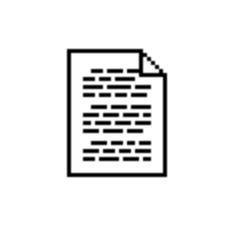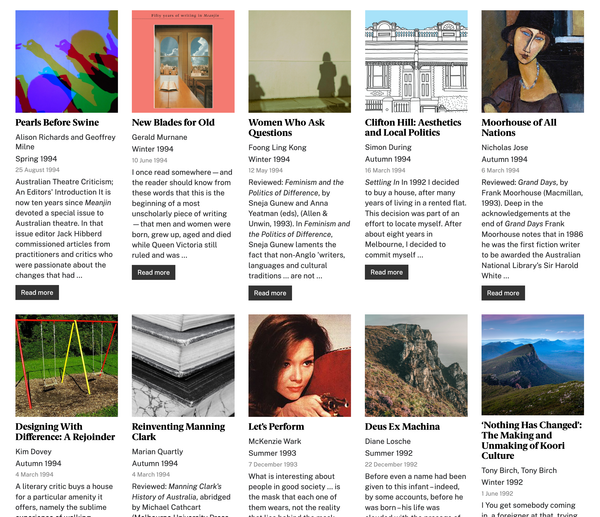Postcard from Grenoble
I got voxpopped in Grenoble over the weekend as I was strolling through a park. The journalist, who was from the local TV station (yes, they still have them here, along with independent bookshops, small museums, music on the streets, cafés open after 3pm), wanted to know how I was voting in the second round of the legislative election. She lost interest the second I told her I wasn’t French, and darted off before I could make an ardent, vacuous comment about what it’s like to watch an enormously consequential election play out as a temporary expat. She clocked straight away that the stakes were low for me and that I had no useful analysis to offer. In Australia we love to know what foreigners make of our political arrangements, and across the English-speaking world, emotion stands in for election analysis as a matter of course.
Last night, when the exit polling was released, there were cheers in the square outside our flat, though it was nothing like the frenzy that erupted after France made it to the semi-finals of the Euros on Friday, and quieter too than the protest that roiled in the town centre last week after the results of the first round of the elections came through.
Grenoble is well-insulated from the rising tide of the far right. It is a prosperous left-wing town that’s been led since 2012 by an eco-socialist mayor aligned with Jean-Luc Mélenchon. The city was a stronghold of the Resistance in the second world war and this year celebrates the 80th anniversary of liberation from German occupation. In the Musée de la Résistance downtown you can learn about how university staff supported the maquis and protected their students from compulsory German work orders by falsifying documents. Whatever happened in the rest of the country, this city was going to stay with the left. The few National Rally posters I’ve seen around our neighbourhood have all been torn down or defaced.

Being a foreign visitor to Grenoble is thus to be doubly shielded from French politics, to live in a bubble within a bubble. Or at least, that applies to the kind of visitors we are, drawn in part by the universities and the tech sector, and in part by the fromage and proximity to the Alps. Grenoble’s ritzy graduate schools are full of ritzy international students and there are engineers and analysts from all over the world working here too. The relief I experienced when the results came in last night was that of a privileged spectator, and I’m not sufficiently informed about contemporary European politics to make credible assertions about what this means for the rest of Europe, let alone for global politics.
Thank the goddess, of course, that the smug, repellent Jordan Bardella won’t be the PM of France, and that Marine Le Pen’s ambitions have been staunched for the moment. And of course, like everybody else I want this turn to the left in the UK and in France to mean something. But what? That, in the case of the UK, corrupt, inept and entitled governments will eventually get their comeuppance, it’s just that it will take fourteen years and the cost will be immense human suffering and a widened chasm of inequality? That, in the case of the France, polling in favour of unbelievably racist right-wing demagogues might be misleading? The fantasy here is that centre-left success in France and the UK (OK, centrist success in the UK) might somehow be a harbinger of Democrat victory in November, that it might make it more likely that we will see the kind, sane model of out-of-touch gerontocrat elected rather than the deranged dictatorial iteration. Fingers crossed – but the analogies between UK and US politics in particular strike me as extremely weak. You might as well slay and quarter a rabbit and look for signs in the poor creature’s steaming entrails as draw conclusions about US politics from these recent elections. We are living in the epoch of vibes-based political commentary, however, and that woman who walked away from me in the park on the weekend was an anomaly. I shall grit my teeth for the inevitable slew of op-eds this week about what Biden and Albanese and Trudeau can learn from Starmer and the New Popular Front. In the meantime, we must exult, if briefly, in the concession speeches given by conservative and centrist leaders. Rishi Sunak’s was a classic of the genre, all denial, politesse and forbearance (‘To the country, I would like to say, first and foremost, I am sorry’).
My kids are on summer hols and so this newsletter is also also in lazy rambly holiday mode until we return to BC and to something resembling normal school/childcare arrangements. I’m toggling between work mode and extremely pleasant forms of swanning around.
I’ve stayed away from the echo chambers of online literary discourse and read to please myself rather than to keep up. Highlights include Claire Tomalin’s wonderful biography of Mary Wollstonecraft, Vengeance is Mine by Marie NDiaye and Gail Jones’ most recent novel, One Another, a brilliant, highly moving book which thinks in such interesting ways about literary life-writing, and will (should) prompt me to read more novels by Joseph Conrad. If the weather doesn’t heat up to much, I will have a go at reading at least one of Annie Ernaux’s shorter books in French, probably Passion Simple, and might get past the first few pages of Emmanuel Carrère’s book on Limonov, which I picked up from a street library.
Another notable from the street library: Couples (1968) by John Updike. Behold this cover!

I only got through the first chapters of lamentation about the lost looks and libidos of wives, and the untended desires of husbands. As capricious as Updike’s prose is, and as curious as I am about the sexual mores of the late 60s, the book is so sodden with unreconstructed sexism, casual racism, and hetero-crisis, I just couldn’t be bothered, at least not on holidays. (The NYT review of it is a time capsule too. Opening sentence: ‘A few years ago, Norman Mailer the critic publicly advised John Updike to keep his foot in the whorehouse door and forget about his damn prose style.’) That said, someone should write an essay putting Couples into dialogue with All Fours by Miranda July. Boomer phallogocentric mid-life crisis meets millenial queer-femme expression of same. Brilliant. It won’t be me, though. For the next month, I’m sticking to postcards.


